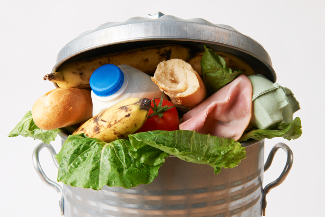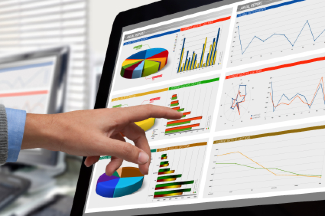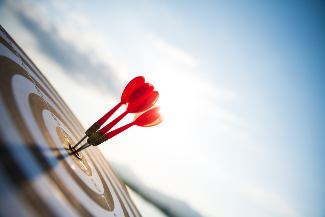Member State Page : Lithuania
Last updated on the 29/09/2023

Per capita: 86 kilos of food waste in 2020
In total: 382 665 tonnes of food waste in 2020
In total: 390 645 tonnes of food waste in 2021

Primary production: 28 057 tonnes in 2020
Processing and manufacturing: 27 342 in 2020
Retail and other distribution of food: 4 495 tonnes in 2020
Restaurants and food services: 4 495 in 2020
Households: 241 570 tonnes in 2020

Halve food waste by 2030 and reduce food losses
Target
Lithuania is committed to meeting the Sustainable Development Goal Target 12.3 to halve per capita food waste at the retail and consumer level by 2030, and reduce food losses along the food production and supply chains.
Measure
The Lithuanian Environmental Protection Agency (EPA) collects data from waste generators through an information system. In 2020, EPA carried out preliminary food waste measurement activities on a voluntary basis according to the EU methodology, utilizing available data from 2018. Reporting of data on food waste and food waste prevention was made according to Commission Implementing Decision (EU) 2019/2000.
Every two years, the Lithuanian Statistical Department carries out surveys on food losses in the primary production stage.
Act
A measure to review existing legal basis in order to reduce food wastage is set up in Governmental programme (2021-2023).
The National waste prevention and management plan (2021-2027) includes food waste prevention measures:
- funding measures to support - food sharing or food donation initiatives, short food supply chains, development and implementation of innovative and environmentally friendly technologies;
- awareness raising campaigns;
- regulatory framework for obligatorily donation of food in accordance with good foreign practice.
The Ministry of Agriculture is currently preparing a draft Bioeconomy Strategy and draft actions and measures for the Strategic Provisions for the Development of the Bioeconomy. They integrate improving the regulatory framework by promoting sustainable circular food and feed systems, promoting sustainable circular food and feed systems, promoting the consumption of products made from sustainable circular food systems, and supporting research and analysis for the development and improvement of sustainable circular food systems.
The National energy and climate action plan of the Republic of Lithuania (2021–2030) includes policies and measures that focus on educating and informing the public about the problem of food waste and how to prevent it, improving waste sorting skills, creating information websites, applications and interactive maps; in an effort to reduce the amounts of landfill waste and associated greenhouse gas emissions.
Since 2015 The Chancellery of the Government of the Republic of Lithuania organizes inter-institutional coordination meetings on food loss and food waste reduction in Lithuania. In 2017, it was decided to continue the activities of the Coordinating Working Group for the Determination of Food Waste Prevention and Management Measures (analogue of the Platform on Food Loss and Food Waste), which was approved by the Minister of Environment of the Republic of Lithuania in 2017.
The working group facilitates communications and cooperation between relevant authorities, but also with stakeholders. The main food loss and waste prevention measures implemented by the members of the working group include updating the legal framework, social responsibility actions, as well as awareness raising initiatives.
Food Law states that food that does not comply with the requirements of food and other legal acts, but is safe and fit for human consumption, may be donated in accordance with the procedure established by the Director of the State Food and Veterinary Service.
In national legislation is allowed that surplus food from food industry can be donated to charity and by-products from the food and beverage industry can be used to feed animals. By order of the Director of the State Food and Veterinary Service, 2 procedures were issued setting out the requirements for donating food to charity and for using non-animal foodstuffs for animal feed: Description of food management for charity and support and Description of procedures for the use of non - animal origin food for animals feed.
In 2021 an amendment to the Description of food management for charity and support was adopted, which provides for the possibility of freezing and submitting to charities for processing various expired fresh meat packed in charity canteens, marked with the indication "Expiry date ..."
The Ministry of Agriculture have been prepared draft rules for the providing support for food donated to charity. The rules is currently in a draft state and soon will be adopted, it will give the support to reduce food waste in the primary production.
Amended regulation related to imported, exported and placed on the marked fresh fruit and vegetables:
The waste management hierarchy is applied to all waste streams, including food waste. Waste management law states that as of 2024, the separate collection of household food waste will be mandatory. Separate collection of food waste from households is succsessfully implemented in Alytus region since the end of 2018. Other municipalities are carrying out pilot projects and are preparing for separate collection of household food waste.
In 2019 The Ministry of Health prepared the Guidelines for the implementation of the buffet principle and measures for the reduction of food waste. ‘Swedish buffet’ principles are implemented in kindergartens and schools canteens in order to minimize food waste and encourage healthy meal choices.
At the request of the Ministry of Agriculture, the Lithuanian Institute of Agricultural Economics is preparing two researches: “Principal application of the circular economy (waste) in agriculture and food industry: waste recovery analysis, recommendations” and "Determining the level and causes of food loss and food waste throughout the food supply chain and developing recommendations". Based on these, the Ministry will take steps for prevention of food waste at primary production and food industry or the valorization of food waste into high value-added products.
Ministry of Agriculture prepared a leaflet for primary producers on how to donate products to charities.
The national food bank Maisto bankas created an informative booklet for food business operators who wish to donate food. According to Lithuanian legislation, companies that donate surplus food for charity organisations benefit from income tax reliefs.
Several awareness-raising actions on food waste have been implemented in Lithuania. The Lithuanian Consumer Institute developed the campaign ‘Sincerely, food’, as well as audio-visual tools (videos, interactive quizzes, infotainment games etc.), printed materials, trainings (professional and community-based trainings) and workshops on food waste prevention. Special attention is given to the topic of date marking; the State Food and Veterinary Service published information about difference between ‘use by’ and ‘best before’ dates for consumers.
The project ‘Sustainable Home’ (Darnūs namai) encourages consumers to apply the main principles of a circular economy, raising awareness about the importance of responsible consumption, reducing waste (including food waste) and fighting climate change.
The education material for children on food waste ‘Do good: Save food!’ developed by the United Nations Food and Agriculture Organisation have been adopted and translated into Lithuanian and distributed to Lithuanian schools and kindergartens.
There are some programs (like Ecoinovation+, coordinated by the Ministry of Economics and Innovation) that offer financial support to small and medium enterprises that implement technological eco-innovations in order to reduce the negative impacts of their economic activities on the environment.
